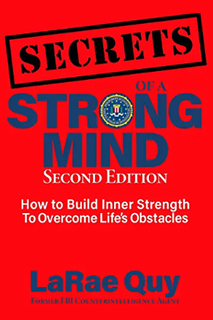As a kid, my parents gave me no choice—I was going to go to college after I graduated from high school. I had no clarity on what to do with my life, so I followed the blueprint laid out by my parents.
I followed the path chosen for me all through school, and when I graduated, some fool told me that if I followed my passion, I’d never have to work a day in my life. Clothes were fun and I loved to shop, so I looked for a job as a buyer in a fancy department store.
What a mistake! I was miserable, bored, and restless. To get out of the rut I had dug for myself, I went back to school to pursue a Master’s degree—but in what?
I had no clue what I wanted to do with my life. Most of my friends had gotten married and started families. Was I supposed to do the same thing?
The default answer I’d get from everyone was “follow your passion” but I suspected that was crap advice, so I set out to pinpoint when and where I found contentment in my life. Not fleeting bursts of vacuous happiness, but experiences that produced value and meaning.
Two things came to mind: I loved history and books. Did that mean I was to be a writer of historical fiction? Or, were history and books destined to be my favorite hobbies? Where would I find success?
Success is understanding how we can plot clarity of goals in both business and life. It can be a difficult and messy process and it takes mental toughness to work through the uncertainty.
Are you mentally tough? Here is an evidence-based Mental Toughness Assessment
Do you follow the blueprint of someone else’s life or create one of your own? Parker Palmer wrote in his book, Let Your Life Speak, that he grew up admiring people like Martin Luther King and Gandhi. He set out to change the educational system from within. His goal was to become the president of UC Berkeley, and he was almost able to achieve his goal.
The problem was that he hated his job. Palmer finally realized that he could be inspired by people like King and Gandhi, but he didn’t have to walk their path. He resigned and started another career that was more authentic to him.
There are powerful and wonderful voices in the world that provide ideas of what we can do and where we could go. Ultimately, however, we must choose to create our unique blueprint and not try and imitate the lives of others.
At the age of 25, I became an FBI agent. I had found a path that resonated with me. The values held closest by this venerable organization are Fidelity, Bravery, and Integrity. I loved the grit in integrity because I grew up a scrappy kid on a Wyoming cattle ranch. So, my new career wasn’t in history or books, but I didn’t leave them behind, either.
It was a trade-off, but the values of the FBI were important to me. I cut myself a deal: I was living in alignment with my goals even though not everything was in perfect order. There were connections between what I was doing and what I believed to be true.
I retired from the FBI after almost 25 years and wrote 2 books about mental toughness and the secrets of a strong mind. We’ll see where my love of history takes me in the future—but, if it’s no further than the local bookstore, that’s OK too.
Here are 4 ways mental toughness can help you gain clarity in life:
1. Turns Uncertainty into Clarity
Clarity is the ability to see a way forward. It means we use logic to solve our problems. It also means we’ve learned how to keep a handle on our emotions when we’re in the middle of a stressful situation.
Easier said than done because we were created to be emotional creatures, first and foremost. We always respond first with emotion; a strong mind understands this but can engage the thinking brain in ways that will calm down the drama queen emotional brain.
This ability allows you the clarity to thrive during the worst of times and make adjustments in real-time to keep gaining momentum.
Uncertainty is the nemesis of clarity, and unchecked emotions can create cesspools of uncertainty in our life as we second-guess our decisions and sabotage our best effort to move forward.
Emotions are important, even the ugly ones, and they all have something to teach us if we allow them. Too often we tamp down the shameful emotions that embarrass us and pretend they don’t exist.
News flash! They don’t go away because you don’t like them. They burrow underground and then pop up again when they are the least wanted—or expected. A strong mind gives you the tools to improve the odds that this won’t happen because it has learned how to control your emotional responses.
How To Make It Work For You: To get your emotional brain under control, so you can move forward with more clarity, follow these steps:
1. Label the emotion—when you experience an unwanted or unproductive emotion, label the emotion for what it is, no matter how embarrassing. Studies show that when we articulate what we’re feeling, it helps minimize the physiological response.
2. Relabel the emotion—jettison the negative feedback loop by immediately reframing or relabeling the emotion you are feeling. Give it a label that’s neutral or positive. For example, instead of “anxious,” you might relabel it as “adventure.” “Fear” might be something like “curiosity.” The point is to shift your feeling from bad to being something good and helpful.
3. Be honest—ugly emotions like greed, jealousy, and envy are often more difficult to relabel, but it’s important to name them for what you are truly experiencing at the moment. These emotions could be relabeled as “ambition” so always be honest (to yourself, at least) when labeling an emotion.
2. Make Wise Use Of Your Morning

Yes, I know, there are hundreds of articles spewing forth wisdom on the importance of morning habits and rituals. Pick and choose what works for you. However, as inconvenient as this may sound to you, research confirms that our brain is most active and creative immediately following sleep.
It should surprise no one that 80 percent of people between the ages of 18-44 check their smartphones within 15 minutes of waking up, thereby losing those precious creative moments.
In Morning Papers, Julia Cameron suggests we sit down every morning and write out 3 pages of whatever is on our mind. It might sound like a time-waster at first, but neuroscience backs up Cameron. Your brain is most creative upon waking up; use this time wisely to gain clarity on your life.
How To Make It Work For You: It takes discipline but find a quiet place and grab a journal. Data dump whatever is on your mind but loosely direct your thoughts on how to gain clarity of goals. Write down whatever comes to mind about those things.
3. Focus Your Energy
Stoic philosopher Lucius Annaeus Seneca states that “It’s not that we have a short time to live, but that we waste a lot of it.”
Seneca was not a spendthrift of his time. He recommended that people refuse to give up even a second of their time to others if it didn’t move them toward their goal.
According to Seneca, we invite others to dominate our time even when it is not in our best interest. He said, “We’re tight-fisted with property and money, yet think little of wasting time, the one thing about which we should all be the toughest misers.”
Today’s entertainment-on-demand world provides instant distractions. We’re attracted to the flashy things that scream for our attention and let ourselves get off track. As a result, our clarity tends to get muddied and contorted by those distractions.
We need to protect our mental boundaries, and it requires a strong mind to shield our personal space, that inner island that should not be breached without personal consent.
When the ordinary isn’t ordinary anymore and a crisis is upon us, our inner space should be a refuge, a place where we can focus on what we want to accomplish each day. It asks us to identify which tasks are essential and then funnel our energy into those priorities.
How To Make It Work For You: There are many good things out there, but ask for more—ask for what is best. Say “no” to opportunities that do not align with your goals for the day. Forget the “busy work” that doesn’t move you toward your goals. Leave social media until the important work is done.
4. Align Immediate And Long-Term Goals

Psychologists Ken Sheldon and Tim Kasser have found that people who have a strong mind and are satisfied with life have a higher degree of vertical coherence among their goals. Long-term and immediate goals all fit together. The connection, even if loose, is important—the pursuit of short-term goals should advance the pursuit of long-term ones.
Their research also states that alignment is easier when people strive to fulfill intrinsic rather than extrinsic goals, both in business and life.
Psychologist Martin Seligman found that people who can make a connection between their work and something socially meaningful are more likely to be satisfied. They are better able to adapt to the inevitable compromises that we all have to make in our job because they’ve used mental toughness to produce clarity of goals.
How To Make It Work For You: Take a look at the questions below. What you do for a living is not as important as why do you do what you do.
- What is work for?
- Is it just about the money?
- How does my work relate to what I feel is important?
- Is my work worthwhile?
- Does my work provide me with opportunities for growth and fulfillment?
The same questions can be applied to your life. Once you pinpoint the areas that breathe life into you, either look for ways to expand them in your current circumstances, or start looking for a place where you can experience them.
© 2022 LaRae Quy. All rights reserved.
You can follow me on Twitter, Facebook, Instagram, AND LinkedIn
Are you mentally tough? Take this evidence-based, FREE Mental Toughness Assessment
Check out my new online training program at www.SecretsOfAStrongMind.com
Get my new book, “Secrets of a Strong Mind (second edition): How To Build Inner Strength To Overcome Life’s Obstacles”

Author of “Mental Toughness for Women Leaders: 52 Tips To Recognize and Utilize Your Greatest Strengths”



Wonderful way to start the New Year LaRae! Your questions about aligning our professional goals with our personal ones are spot on. I have learned that when people pursue careers that match their interests they are more likely to be successful.
Happy New Year!
Terri